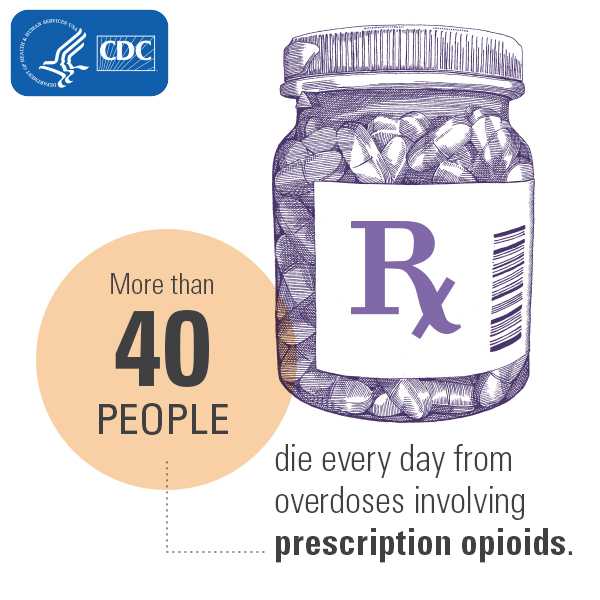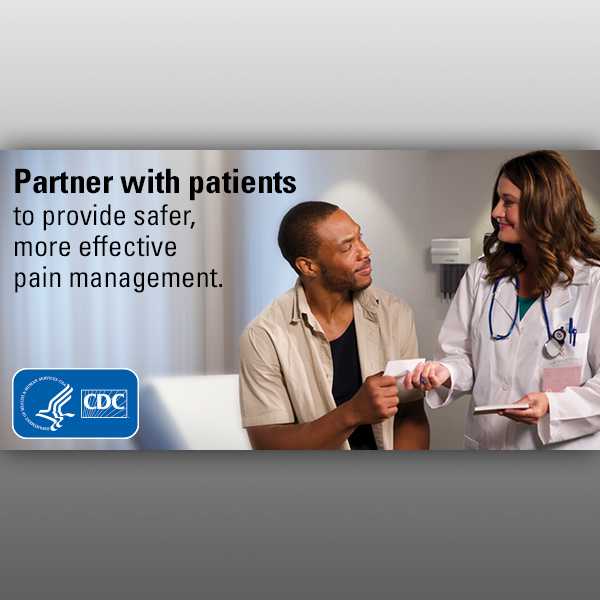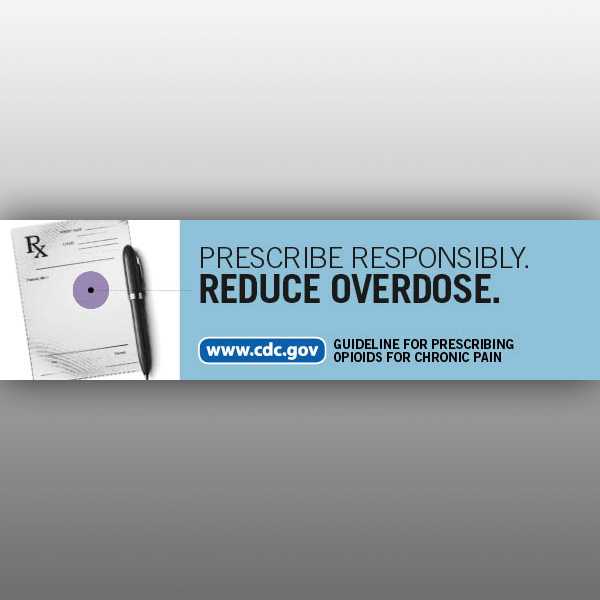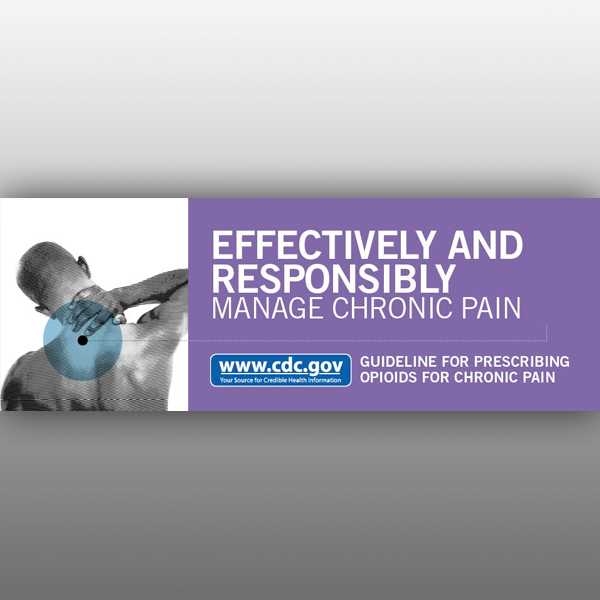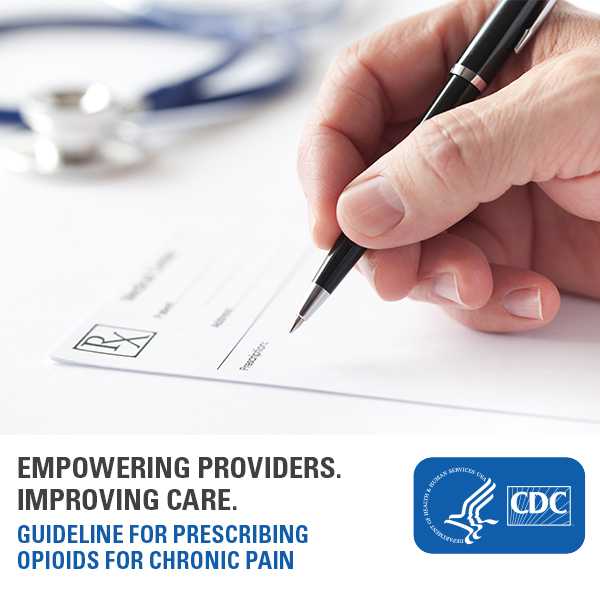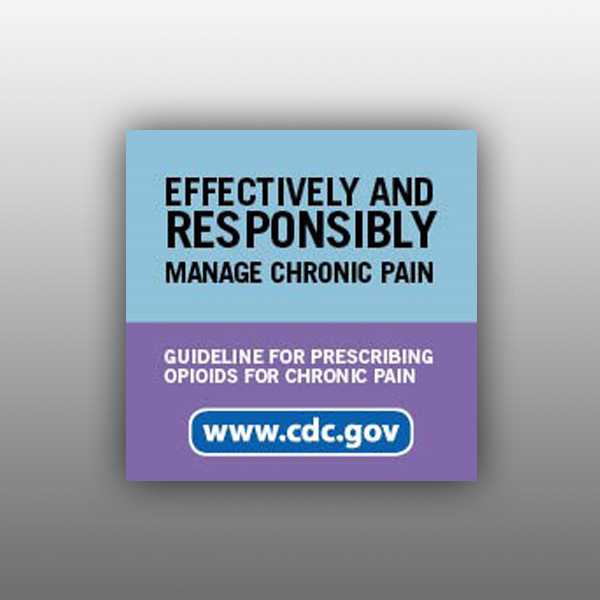CDC Releases Guideline for Prescribing Opioids for Chronic Pain
As part of the urgent response to the epidemic of overdose deaths, CDC issued new recommendations for prescribing opioid medications for chronic pain, excluding cancer, palliative, and end-of-life care. The CDC Guideline for Prescribing Opioids for Chronic Pain, United States, 2016 will help primary care providers ensure the safest and most effective treatment for their patients.
The United States is currently experiencing an epidemic of prescription opioid misuse and overdose. Increased prescribing and sales of opioids—a quadrupling since 1999— helped create and fuel this epidemic.
The guideline provides recommendations on the use of opioids in treating chronic pain (that is, pain lasting longer than three months or past the time of normal tissue healing). Chronic pain is a public health concern in the United States, and patients with chronic pain deserve safe and effective pain management. This new guideline is for primary care providers—who account for prescribing nearly half of all opioid prescriptions—treating adult patients for chronic pain in outpatient settings. It is not intended for guiding treatment of patients in active cancer treatment, palliative care, or end-of-life care.
While prescription opioids can be part of effective pain management, they have serious risks. The new guideline aims to improve the safety of prescribing and curtail the harms associated with opioids, including opioid use disorder and overdose. The guideline also focuses on increasing the use of other effective treatments available for chronic pain, such as nonopioid medications or physical therapy.
By using the guideline, primary care physicians can determine if and when to start opioids to treat chronic pain. The guideline also offers specific information on medication selection, dosage, duration, and when and how to reassess progress and discontinue medication if needed. Using this guideline, providers and patients can work together to assess the benefits and risks of opioid use.
Among the 12 recommendations in the guideline, three principles are key to improving patient care:
- Nonopioid therapy is preferred for chronic pain outside of active cancer, palliative, and end-of-life care.
- When opioids are used, the lowest possible effective dosage should be prescribed to reduce risks of opioid use disorder and overdose.
- Providers should always exercise caution when prescribing opioids and monitor all patients closely.
In developing the guideline, CDC followed a rigorous scientific process using the best available scientific evidence, consulting with experts, and listening to comments from the public and partners. CDC is dedicated to working with partners to improve the evidence base, and will refine recommendations as better evidence is available.
CDC developed user-friendly materials to assist providers with implementing the recommendations, including a decision checklist. These materials, as well as information for patients, are available at http://www.cdc.gov/drugoverdose/prescribing/resources.html.
For related information:
- JAMA Special Communication: CDC Guideline for Prescribing Opioids for Chronic Pain
- Guideline Resources
- Opioid Basics
- Prescription Opioids
- Overdose Prevention
Visit the full press release for more details.
Contact Information
CDC Media Relations
(404) 639-3286
media@cdc.gov
Spokespersons
Deb Houry, MD, MPH
“Doctors want to help patients in pain and are worried about opioid misuse and addiction. This guideline will help equip them with the knowledge and guidance needed to talk with their patients about how to manage pain in the safest, most effective manner.”
Deb Houry, MD, MPH – Director of the National Center for Injury Prevention and Control (NCIPC)
Debbie Dowell, MD, MPH
“Patients with pain deserve safe and effective treatment. Since long-term opioid use has uncertain benefits but known, serious risks, opioids should not be used as routine therapy for chronic pain outside of active cancer treatment, palliative care, or end-of-life care.”
Debbie Dowell, MD, MPH – Senior Medical Officer, Special Advisor Division of Unintentional Injury Prevention (DUIP), National Center for Injury Prevention and Control (NCIPC) )
- Page last reviewed: March 15, 2016
- Page last updated: March 23, 2016
- Content source:



 ShareCompartir
ShareCompartir
